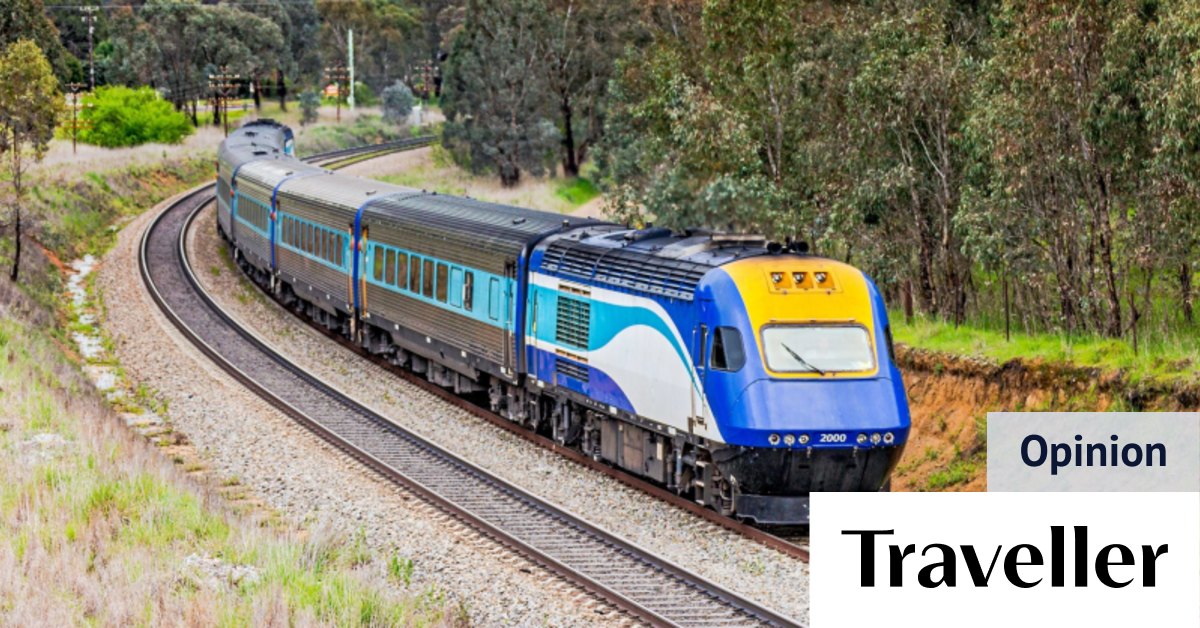This is an automated archive made by the Lemmit Bot.
The original was posted on /r/australia by /u/SteveJohnson2010 on 2023-11-27 01:33:23.
Come with me on a magical journey between Sydney and Melbourne. No, not via the airport… but starting at Sydney’s Central Station, aboard a newly refurbished all-sleeper night train.
I’ve already checked in and spent time relaxing in the comfortable new lounge dedicated to sleeper passengers: enjoying a complimentary drink and using the Wi-Fi. Now, after stepping on board, I use a keycard to open my compartment (mine has a bed and lounge, though there are more economical, capsule-style singles for those on a budget), shove my backpack in the storage space, then head for the bar.
At the bar car, with its comfortable seating and tables, I browse the menu – which features food and drink from the two states we’re passing through – then order a platter featuring the cheeses of Victoria’s High Country, accompanied by a glass of pinot gris from New South Wales’ Southern Highlands. I finish with a nightcap of Rutherglen muscat, then head for my compartment. There I use the Wi-Fi, plug in my phone and tablet to recharge, and brush my teeth before dropping off to sleep.
In the morning as we approach Melbourne’s Southern Cross station, I take a shower before an attendant delivers to my room a pre-ordered hot breakfast – eggs, croissant, juice, coffee – before we pull in at 7am, ready to start a new day. I could drop into the station lounge at the Melbourne end for another coffee, but instead I head out on the CBD streets, ready to engage with the city.
Sounds like a fantasy, doesn’t it? But there’s no reason we couldn’t have a regular sleeper train service of this quality between Australia’s biggest cities, at affordable fares, with a bit of clever planning in the provision of onboard accommodation; fulfilling our commitments to climate change action at the same time. This kind of sleeper train is already on the way to European tracks, with Austrian Federal Railways (ÖBB) ordering 33 new sleeper carriages for its Nightjet trains, featuring a mix of two-person sleeper compartments, four-person couchettes, and innovative “mini-cabins” which resemble a Japanese capsule hotel: a long rectangular bed with a fold down table and a roller door for privacy.
Nightjet trains provide only basic catering to one’s seat, so the bar in my fantasy description is instead adapted from Scotland’s Caledonian Sleeper train, its ambient bar car having table service and a menu emphasising Scottish produce (including several brands of whisky). I’ve also sketched in the lounges I’ve enjoyed before and after boarding its services; not to mention the marvellous lounge used by Night Riviera sleeper train passengers within the old royal waiting rooms at London’s Paddington Station.
So my perfect journey is a dream – but why can’t Australians enjoy such a pleasant way to travel, given sleeper trains are going through a major resurgence in Europe, partly in response to climate change? It’s a good question, and there’s a simple answer: because the New South Wales government doesn’t want you to.
Its Regional Rail project, inherited from the previous Coalition government, will replace the ageing XPT fleet with new trains built in Spain, and bring many improvements to the long-distance rail experience: including onboard Wi-Fi and charging ports. The bi-modal trains will also be able to run on overhead power when operating on electrified sections of the rail network, cutting down the use of diesel.
There are significant delays in the delivery of the new trains, due to a dispute between the NSW government and manufacturer CAF over various comfort points, including the pitch of passenger seats, which will probably mean they won’t hit the rails until 2027.
However, they will eventually run; but without sleeper accommodation, curtailing a facility that’s been available to Sydney-Melbourne train travellers since 1883, when the two colonies’ railways met at Albury. With different rail gauges, passengers had to change trains there – but in the early 1960s the gauge was standardised and such journeys then took place aboard a single train. The sleeper trains which plied this route had marvellous names such as the Spirit of Progress and the Southern Aurora, and were used by a wide array of passengers in the days before broadly affordable domestic flights.
So where are we today? The current XPT trains began service in New South Wales in 1982, and replaced the overnight Sydney/Melbourne Express with sleeper carriages in 1993. As old as the current rolling stock is, it’s well-used; when domestic airfares soared in 2022, there was a surge of bookings on the XPT. I recently joined in the fun: on a business trip to a travel trade conference in early 2023, I caught the XPT day train to Sydney and returned to Melbourne in a sleeper berth on the night train.
Is the XPT the sleeper train of my dreams? Frankly, no. The train is showing its age, and is lacking such modern amenities as power points and Wi-Fi. The food, though affordable, could do with improvement. However, the sleeper compartments are comfortable, and the timing is good. For a sleeper train to work well, it should be timed to arrive early, but not too early. Via the XPT, the 7.30am arrival at Melbourne and 6.59am arrival at Sydney are perfect: allowing a passenger to connect with local transport and get on with their day. We talk a lot about high-speed trains, and they’d be great too, but with a sleeper train, you take advantage of the measured pace to replace a night in a hotel and avoid all the time-wasting at airports.
The current XPT sleeper service isn’t perfect, but it’s a brick to build on; what works in Europe could work well here. And as the new NSW government is having to revisit the design of the Spanish-built replacement trains it’s ordered, why not extend that rethink to adding sleeper accommodation? It’s more pleasant than flying, it’s future-facing, and the environment would appreciate the break.


